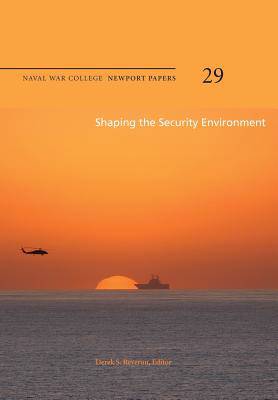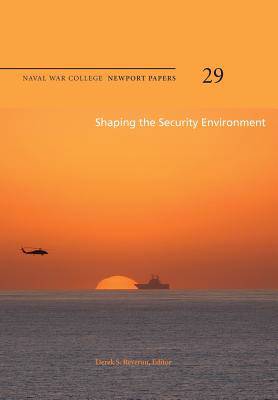
- Retrait gratuit dans votre magasin Club
- 7.000.000 titres dans notre catalogue
- Payer en toute sécurité
- Toujours un magasin près de chez vous
- Retrait gratuit dans votre magasin Club
- 7.000.000 titres dans notre catalogue
- Payer en toute sécurité
- Toujours un magasin près de chez vous
Shaping the Security Environment
Naval War College Newport Papers 29
Naval War College Press
Livre broché | Anglais
29,45 €
+ 58 points
Description
Newport Paper No. 29, Shaping the Security Environment, edited by Derek S. Reveron, makes an important contribution to an unfolding debate on the global role of U.S. military forces in an era of transnational terrorism, failed or failing states, and globalization. Reveron, professor of national security decision making at the Naval War College, looks beyond the current conflicts in which the United States is involved to raise fundamental questions concerning the regional diplomatic roles of America's combatant commanders (COCOMs) and, more generally, the entire array of nonwarfighting functions that have become an increasingly important part of the day-to-day life of the American military as it engages a variety of partners or potential partners around the world. These functions are increasingly being given doctrinal definition and a larger role in U.S. military planning under the novel concept of "shaping." This volume is intended to explore the notion of shaping in its various aspects, both generally and in several regional contexts. The changing role of the regional COCOMs (formerly CINCs) over the last dozen years or so is the focus of a paper by General Anthony Zinni, U.S. Marine Corps (Ret.), who provides a characteristically frank and illuminating account of his own tenure as commander of the U.S. Central Command, with responsibilities for the Persian Gulf and the greater Middle East. Papers by Commander Alan Lee Boyer, USN (Ret.), and Stephen A. Emerson examine maritime and regional security cooperation from the perspective of the U.S. European Command on the one hand and, on the other, the Combined Task Force-Horn of Africa, a joint organization headquartered in Djibouti that has played a critical role in recent years in strengthening the capabilities of countries throughout the region to improve their own security and counter terrorism. Two further chapters examine aspects of shaping from a global perspective. Ronald E. Ratcliffe provides a searching analysis of the "thousand-ship navy" initiative proposed several years ago by outgoing Chief of Naval Operations Michael Mullen, including the difficulties the U.S. Navy has had in operationalizing this concept-and the difficulties some of our allies and partners continue to have in coming to terms with it. Ratcliffe makes a number of useful recommendations as to how the Navy can make headway in the area of maritime security cooperation in the coming years, which is likely to figure prominently in the new maritime strategy the Navy is currently developing. Finally, Dennis Lynn looks at "strategic communication," also a relatively new concept that is intended to bring greater coherence to the way the U.S. military thinks about the overall impact of its words and actions abroad and how it can better craft messages to shape the environment-friendly as well as adversarial-in which it finds itself today.
Spécifications
Parties prenantes
- Auteur(s) :
- Editeur:
Contenu
- Nombre de pages :
- 118
- Langue:
- Anglais
Caractéristiques
- EAN:
- 9781478391593
- Date de parution :
- 08-08-12
- Format:
- Livre broché
- Format numérique:
- Trade paperback (VS)
- Dimensions :
- 170 mm x 244 mm
- Poids :
- 199 g







